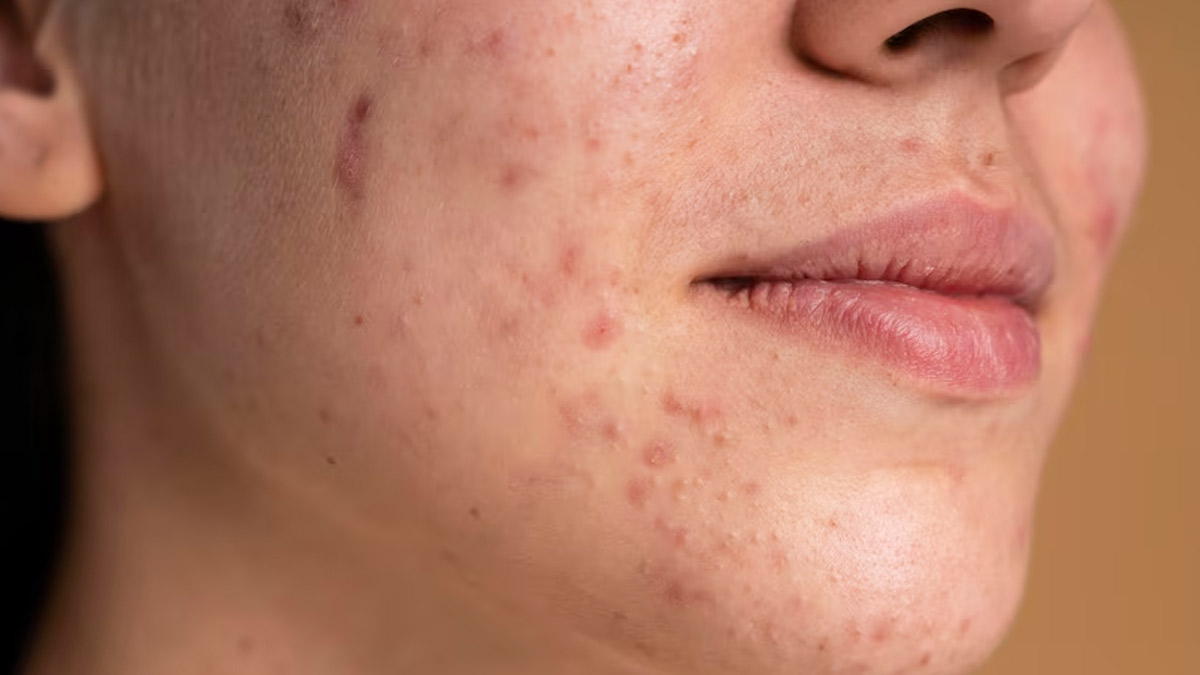
Acne is a common skin condition that affects millions worldwide, leading many to seek effective treatments. While topical treatments and medications are popular, dietary changes can also play a crucial role in managing acne. One such dietary intervention is the increased intake of omega-3 fatty acids. These essential fats, commonly found in fish oil, flaxseeds, and walnuts, offer several benefits that can help reduce acne and improve overall skin health.
Table of Content:-
Understanding Omega-3 Fatty Acids
Omega-3 fatty acids are polyunsaturated fats essential for various bodily functions. There are three primary types of omega-3s: eicosapentaenoic acid (EPA), docosahexaenoic acid (DHA), and alpha-linolenic acid (ALA). EPA and DHA, primarily found in fatty fish and fish oil supplements, are particularly beneficial for skin health.
The Science Behind Omega-3s and Acne Reduction

Anti-Inflammatory Properties: Acne is often characterised by inflammation, leading to redness, swelling, and pain. Studies have shown mega-3 fatty acids, especially EPA and DHA, have potent anti-inflammatory properties. They reduce the production of inflammatory molecules like prostaglandins and leukotrienes, which play a significant role in acne development. By decreasing inflammation, omega-3s can help reduce the severity of acne lesions and promote faster healing of the skin.
Also read: What is Tretinoin? Here’s How It Protects Your Skin Against Acne
Regulation of Sebum Production: Sebum, an oily substance produced by sebaceous glands, is essential for skin hydration. However, excessive sebum production can clog pores and lead to acne. Omega-3 fatty acids help regulate sebum production, balancing oil levels in the skin and preventing the formation of acne lesions. This regulation is partly due to omega-3s' ability to influence hormonal activity, as imbalances in hormones like androgens can increase sebum production.
Antibacterial Effects: According to studies the bacteria Propionibacterium acnes thrive in clogged pores, contributing to the development of acne. Omega-3 fatty acids have been found to possess antibacterial properties that can inhibit the growth of P. acnes. By reducing bacterial colonisation on the skin, omega-3s help prevent acne outbreaks.
Improvement of Skin Barrier Function: A healthy skin barrier is crucial for protecting against environmental aggressors and maintaining skin hydration. Omega-3 fatty acids strengthen the skin barrier, improving its resilience and reducing the likelihood of acne-causing irritations. A robust skin barrier also helps retain moisture, which can prevent the overproduction of sebum as the skin compensates for dryness.
Also read: Health Benefits of Omega 3 Fish Oil Capsule
Sources of Omega-3 Fatty Acids

Incorporating omega-3 fatty acids into your diet can be achieved through various sources:
- Fatty Fish: Salmon, mackerel, sardines, and trout are rich in EPA and DHA.
- Fish Oil Supplements: These are convenient options for those who may not consume enough fish.
- Plant-Based Sources: Flaxseeds, chia seeds, walnuts, and hemp seeds are good sources of ALA, which the body can partially convert to EPA and DHA.
- Algal Oil: A vegan source of DHA, derived from algae, is available in supplement form.
Practical Tips for Increasing Omega-3 Intake
Incorporate Fatty Fish into Your Meals: Aim to include fatty fish in your diet at least twice a week. Grilled salmon or mackerel can be delicious and nutritious additions to your meals.
Add Seeds to Your Diet: Sprinkle flaxseeds or chia seeds on your breakfast cereal, yoghurt, or salads. These seeds can also be blended into smoothies for an omega-3 boost.
Consider Supplements: If dietary changes are challenging, consider taking fish oil or algal oil supplements. Consult with a healthcare professional to determine the appropriate dosage for your needs.
Explore Omega-3 Enriched Foods: Some foods, such as eggs and dairy products, are fortified with omega-3s. Check labels and consider incorporating these into your diet.
Conclusion
While acne can be a persistent and frustrating condition, dietary interventions like increasing omega-3 fatty acid intake offer a promising approach to managing and reducing acne. With their anti-inflammatory, sebum-regulating, antibacterial, and skin barrier-enhancing properties, omega-3s can help transform your skin from the inside out. By incorporating omega-3-rich foods into your diet or considering supplements, you can take a proactive step towards clearer, healthier skin.
Also watch this video
How we keep this article up to date:
We work with experts and keep a close eye on the latest in health and wellness. Whenever there is a new research or helpful information, we update our articles with accurate and useful advice.
Current Version